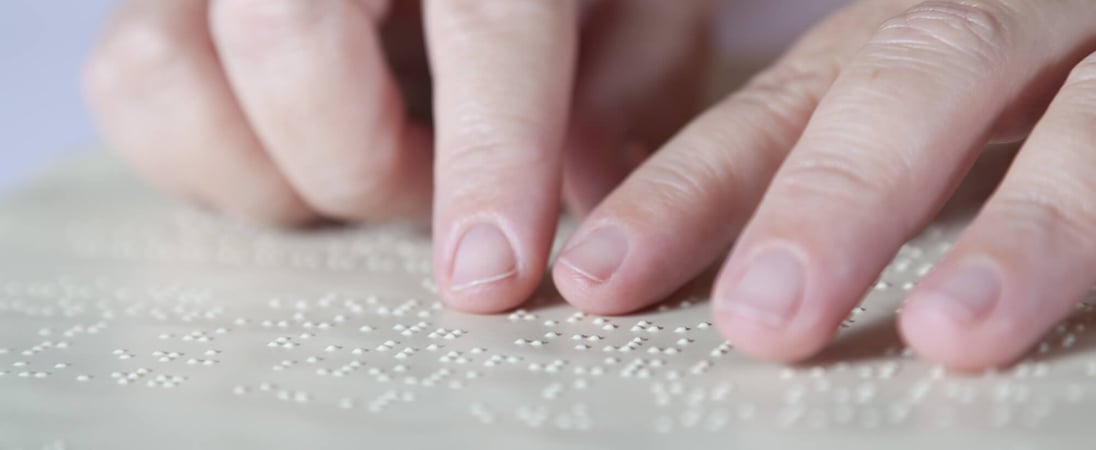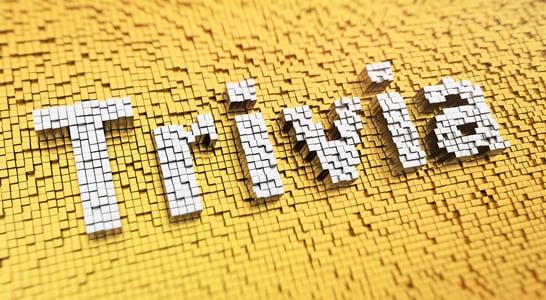
World Braille Day
Fingertips deciphering raised dots, enabling the visually impaired to read — a remarkable way of bridging the gap in the world of words.
World Braille Day celebrates the birth of Louis Braille, inventor of the reading and writing system used by millions of blind and partially sighted people all over the globe.
Though not a public holiday in any country, World Braille Day provides an opportunity for teachers, charities and non-government organizations to raise awareness about issues facing the blind and the importance of continuing to produce works in Braille, providing the blind with access to the same reading and learning opportunities as the sighted.
How to Celebrate World Braille Day
Offer Braille Resources
Businesses, restaurants, medical offices, government agencies and others in the community can celebrate World Braille Day and serve blind people by providing documents, menus, instructions and other helpful items in Braille.
Get in touch with a local organization for the blind to access assistance with translation and other concerns.
Celebrate Braille Literacy
It’s an incredible thing for a person who is blind to learn how to read by using their fingertips! In 2003, the United Nations named literacy as a human right with their Literacy as Freedom campaign.
People with disabilities often face struggles with literacy inequality, being less likely to have access to the resources that sighted people have.
World Braille Day is an excellent time to celebrate — and advocate for more — literacy equality!
Learn More About Braille
As incredible as braille is, and as much as it offers blind and partially sighted people, braille books must stay within the country where they are produced because of restrictive international copyright laws.
Because braille books cannot be shared across borders, the blind cannot read any books that are not produced within their own country.
Unfortunately, at present only 5% of all published materials get produced in accessible formats, which means that under 10% of all blind children in developing countries go to school due to the shortage or lack of teaching materials.
The Marrakesh Treaty is the name of an international agreement finalized in June 2013 that would allow copyright exceptions for published works to be made widely available in accessible formats.
The implementation of the Marrakesh Treaty will allow blindness organizations to share their resources with other organizations in developing countries that may not have the resources to produce books for their blind citizens.
Then, schools for the blind in wealthier countries would be able to send books to schools in poorer countries so blind children who cannot afford to buy braille books will still have access to the textbooks needed for them to finish school.
For example, Spain’s ONCE (Organización Nacional de Ciegos Españoles, or The Spanish Foundation for the Blind) could make their braille library available to blindness organizations in all of the Spanish-speaking countries in South America, thus saving the costs of reproducing the exact same books for each separate country.
However, these resources can be shared only if this treaty becomes law in all of the countries around the world.
This coming World Braille Day, celebrate Louis Braille’s achievements and help millions of blind and partially sighted people everywhere by writing a letter to your government representatives encouraging them to make this treaty a reality.
History of World Braille Day
Louis Braille, the inventor of braille, was born in France on January 4th, 1809. Blinded in both eyes in an accident as a child, Braille nevertheless managed to master his disability while still a child.
Despite not being able to see at all, he excelled in his education and received scholarship to France’s Royal Institute for Blind Youth.
During his studies, inspired by the military cryptography of Charles Barbier of the French Army, he developed a system of tactile code that could allow the blind to read and write quickly and efficiently.
Braille presented the results of his hard work to his peers for the first time in 1824 when he was just fifteen years of age. In 1829, he published his first book about the system he had created, called “Method of Writing Words, Music, and Plain Songs by Means of Dots, for Use by the Blind and Arranged for Them”.
The braille system works by representing the alphabet letters (and numbers) in a series of 6 dots paired up in 3 rows.
The simplicity of his idea allowed books to start being produced on a large scale in a format that thousands of blind people can read by running their fingertips over the dots.
Thanks to this, blind students have the opportunity to be educated alongside their peers as well as read for pleasure just as easily as any seeing person can.
World Braille Day dated back to 2009 when it was founded through the efforts of the World Blind Union to celebrate the anniversary of Louis Braille’s birth. Later, in 2019, the day was officially proclaimed by the United Nations.
World Braille Day FAQs
Why did Louis Braille invent braille, and what inspired him?
Louis Braille was inspired by Charles Barbier’s “night writing” system, which French soldiers used to communicate silently in the dark.
Braille lost his sight as a child and, by age 12, adapted Barbier’s concept, creating a simpler, six-dot system that became a revolutionary tool for literacy among the blind.
Is braille used in unexpected places we might not notice?
Yes, braille appears on drive-up ATMs, medicine bottles, and even some board games like Uno and LEGO sets.
Many places now include braille in signage, giving visually impaired individuals greater access to public spaces and entertainment.
Are there variations of braille for different uses?
Braille has specialized versions for math (Nemeth Code), science, and music. Each uses unique symbols and rules within the braille cell structure, allowing visually impaired students and professionals to engage with complex subjects.
How is World Braille Day celebrated globally?
In France, where braille originated, there are events at museums and Louis Braille’s birthplace.
In India, organizations hold awareness programs, while the U.S. libraries and schools host braille literacy events and workshops to teach braille basics.
Is there a Braille holiday or landmark outside World Braille Day?
In Japan, November 4 is “Japanese Braille Day,” celebrating Kuraji Ishikawa’s development of a braille system for Japanese script. This day highlights the importance of braille adaptations in various languages and scripts.
Did you know Braille is not a language but a code?
Braille is often mistaken as a language, but it’s a code that can represent nearly any written language.
Each braille symbol represents letters, numbers, or punctuation, allowing braille readers to read multiple languages globally.
What are some myths or misconceptions about Braille?
One myth is that all blind people read braille, but only about 10% of visually impaired individuals know it, mainly due to technological alternatives.
Still, many advocates stress that braille literacy is crucial for employment and independence.
Can braille users read as fast as sighted readers?
Yes, skilled braille readers can reach comparable speeds to sighted readers. Braille literacy enables a fluid reading experience, which aids in educational and career success, especially when learned early.
What’s the story behind “9969 Braille,” the asteroid?
NASA named an asteroid “9969 Braille” in honor of Louis Braille. Discovered in 1992, it was a symbolic tribute to the transformative impact of braille on human communication across boundaries.
Are there tactile art forms inspired by braille?
Yes, tactile art that incorporates braille textures allows visually impaired people to enjoy art by touch.
Some artists create pieces with raised braille patterns, bridging the gap between visual art and tactile experiences.
Also on ...
View all holidaysPop Music Chart Day
Groovy beats and catchy melodies that fill the airwaves, this musical genre is all about upbeat rhythms that get feet tapping and spirits soaring.
National Spaghetti Day
Savor your favorite Italian dishes from carbonara to meatballs, sign up to a pasta-making class or watch a thrilling Spaghetti Western.
National Trivia Day
Get your thinking cap on and test your knowledge with fun facts, interesting tidbits, and brain teasers.
World Hypnotism Day
It's like a mind hack, slipping into a super-relaxed state, and suddenly, the solutions to your problems can appear.
We think you may also like...
Dysautonomia Awareness Month
Join or host a fundraising event, do your research, and help raise awareness about dysautonomia, a class of diseases affected the autonomic nervous system.
R U OK? Day
Extending genuine care, ensuring well-being, and fostering connections through thoughtful moments of empathy and support.
Alzheimer’s & Brain Awareness Month
Promoting understanding, advancing research, and supporting those affected to make a meaningful impact on cognitive health.
Soup It Forward Day
Providing warm meals fosters compassion, supports vulnerable populations, and strengthens community bonds through acts of kindness.







